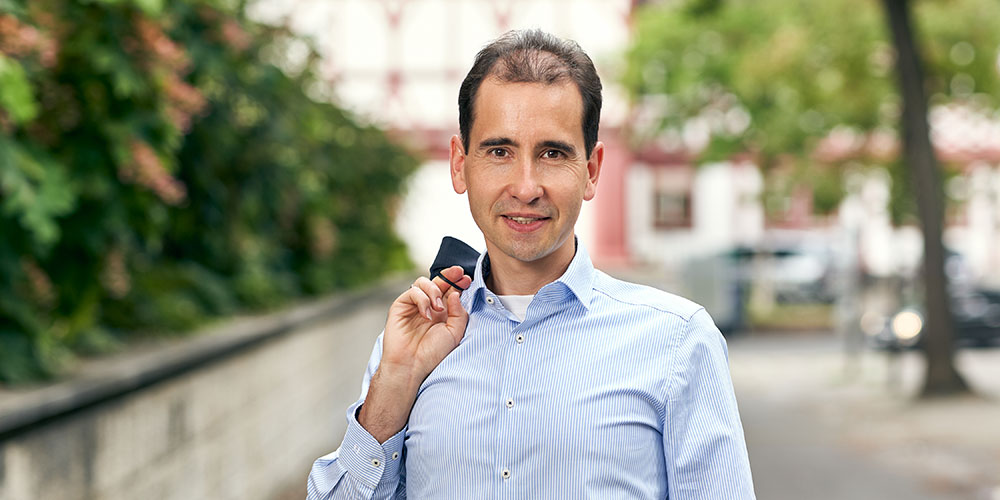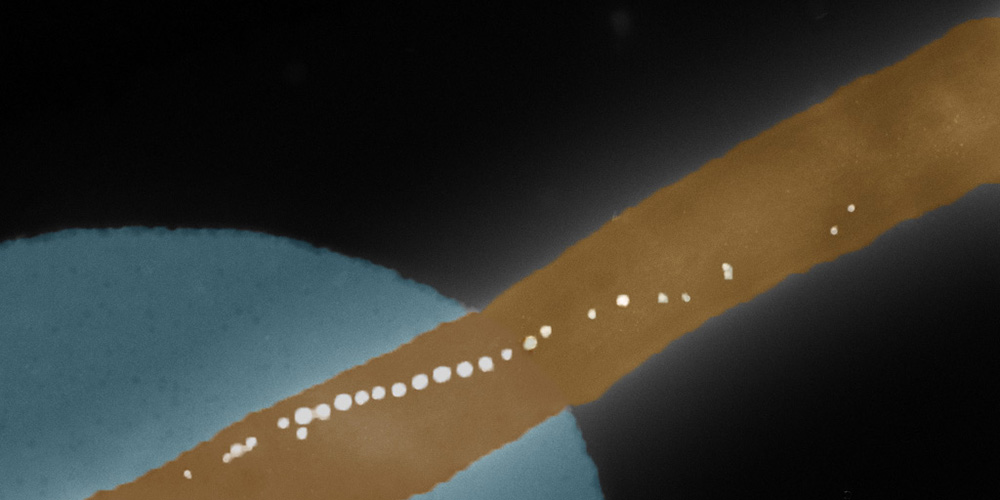“No one is immune to fake news”
Fake news is not a phenomenon that only affects the educationally disadvantaged in our society. Academics are also prey to it, says social psychologist Professor Rainer Greifeneder. He has recently published a new book on the subject.
02 September 2020
Professor Greifeneder, the churches have been claiming for centuries that those who lead a good life, help the needy and do not swindle anyone are more likely to go straight to heaven than sinners. Is that fake news?
No. By definition, fake news involves an intention to deceive. The party delivering the news must be consciously looking to deceive the potential recipient. We can assume that most church representatives genuinely believe in the Last Judgment and eternal life.
Bill Gates is behind the coronavirus, the world’s elite drink children’s blood, airliners spray us with chemicals to dull our senses: no halfway rational person would believe stories like this. Can we attribute the existence of fake news to failures in our educational system?
Again, no. The reference to a “halfway rational person” evokes a humanistic educational ideal that reflects the world view we both share. But you too are more likely to believe things that conform with your way of thinking and which make it easier to mentally process the world around you – and you are not averse to passing on a sensational story. All humans follow these simple psychological mechanisms, whatever their educational background. Fake news takes advantage of this: someone tells a lie and because of its sensational nature, those who were deceived pass that lie on. In the past, people had to go to great lengths to spread fake news. Now that we have social media, Twitter, etc. it is easier than ever, and all of us can broadcast news to others at the click of a mouse.
What fake news have you shared?
In 2011, the journal Science published a startling social psychology study. I accepted and shared the findings, but they turned out to have been falsified.
So you ought to have checked them?
I’m sure I asked the three questions that guide us all in distinguishing truth from falsehood: Have I heard this information before? Do the people around me believe it? Does it conform with my world view? Back then, I was able to answer yes to all the above.
The fact that people around us believe something doesn’t mean that it’s true.
That is precisely the problem. If the people around me believe a lie, it makes it more likely that I will believe the lie, too. The US presidential election in 2016 took many in Europe by surprise because their filter bubble was not open to information that indicated a Trump victory. When we search for the truth, it is helpful to listen to opinions outside our filter bubble.
In my social science studies, I learned that there is no such thing as facts or truth. Is what we know as factual news in fact the biggest fake news of all?
In epistemological terms, you are correct. As Karl Popper postulated, we can only approximate the truth – it will always remain elusive. This is a concept we struggle with, because we all have a psychological need for clarity. That’s why academia, the freedom of the press and public service media are so important. They bring us a little closer to the truth by discussing it.
For example, the right measures to adopt against the coronavirus?
A good example! First, scientists said that masks were of no use in the fight against the virus. Now we hear the opposite. Thanks to public discussion, people can see that research is a process and that there is no one absolute truth. That’s the reality. Instead of the truth, we have social or scientific consensus, the best of our knowledge at the present time. That’s where I place my trust. Nothing works without trust: it’s the basis for human relationships, trade, the economy, any type of exchange, in fact democracy itself. Fake news destroys trust and is therefore a threat to society.
You investigate fake news. How do you get your findings out to a wider public?
By giving interviews. And my team and I make our publications available through open access wherever possible. Our new book on the subject, co-written with Mariela Jaffé and others, is not behind a paywall – it’s freely available to everyone online. We are grateful for public funding here, in particular from the Swiss National Science Foundation.
Rainer Greifeneder is professor of social psychology at the University of Basel and director of the university’s Center for Social Psychology. His research examines how individuals make sense of their social world and how it shapes their thoughts and emotions. He is particularly interested in the influence of emotions on our capacity to make judgments and decisions.
Rainer Greifeneder, Mariela E. Jaffé, Eryn J. Newman, Norbert Schwarz:
The Psychology of Fake News. Accepting, Sharing and Correcting Misinformation
Routledge, London/New York 2020, doi: 10.4324/9780429295379


